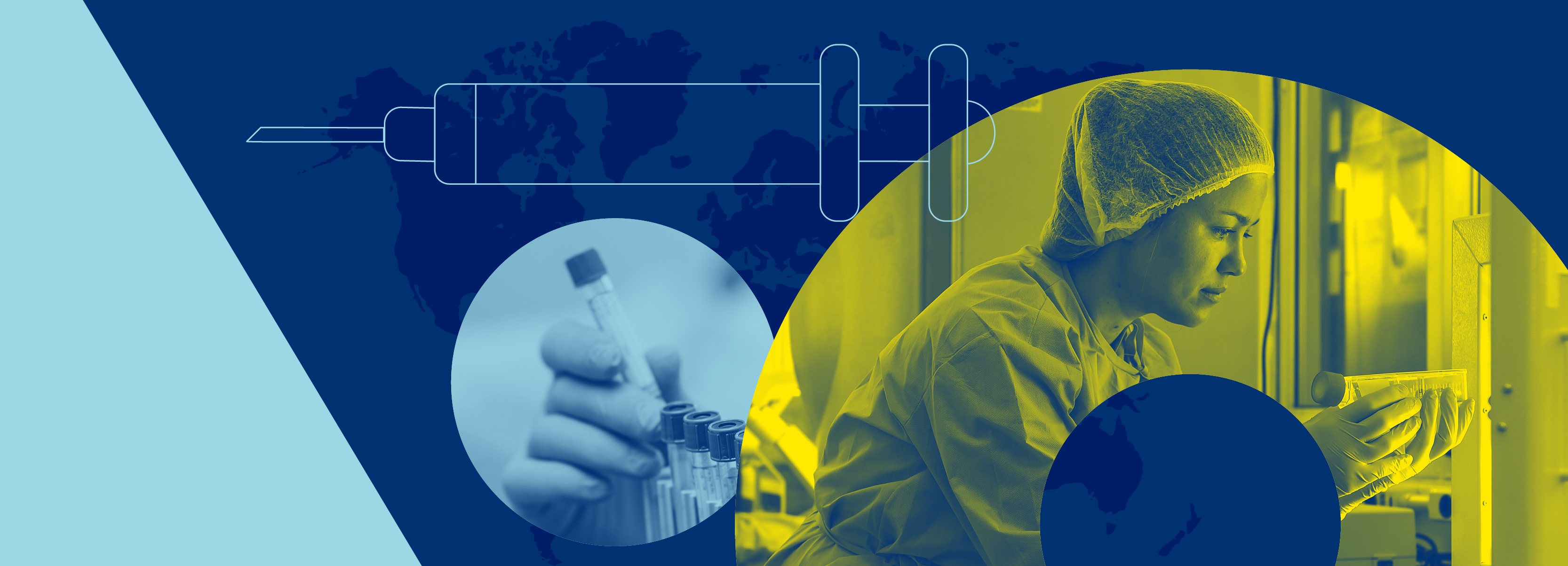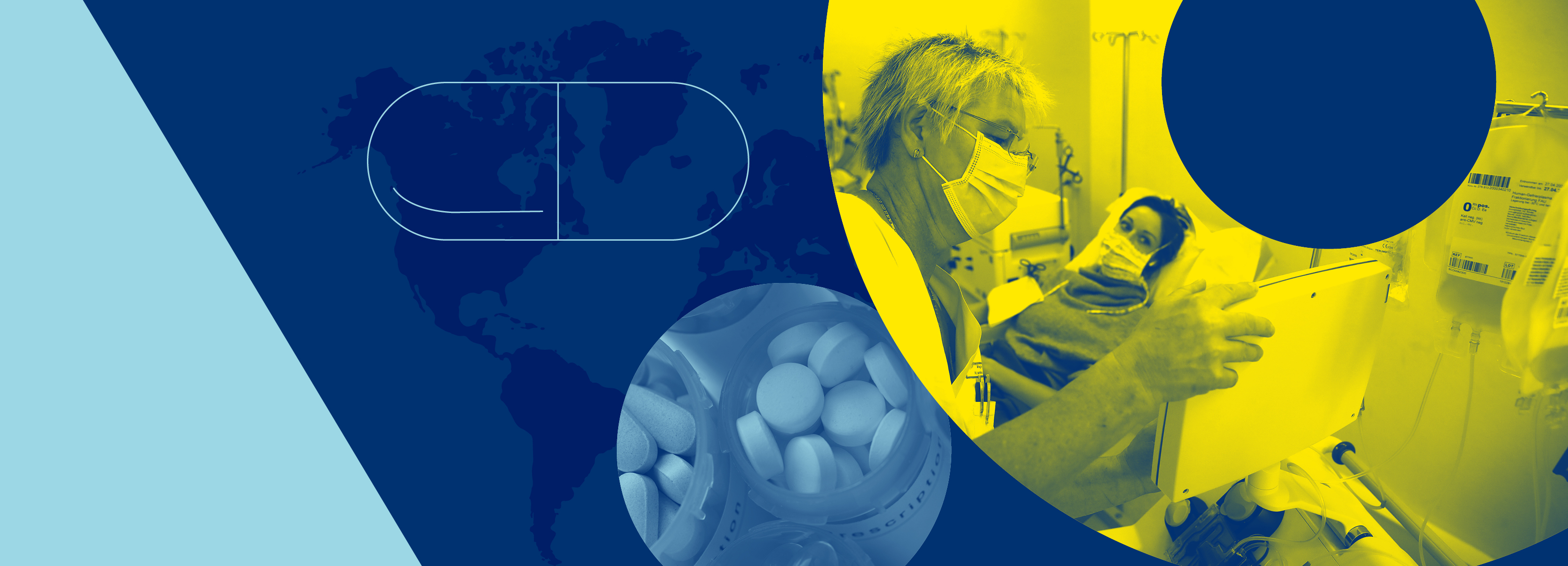Coronavirus (Covid-19): supporting global research and development
We want to help the world overcome COVID-19. Research is the best way to save lives – but more investment in accessible treatments, tests and vaccines is urgently needed to change the course of the pandemic.
We want to help the world overcome Covid-19. Research is the best way to save lives – but more investment in accessible treatments, tests and vaccines is urgently needed to change the course of the pandemic.
We're supporting research and development, and working to make sure that any new vaccines, tests and treatments are mass-produced quickly and reach everyone who needs them.
We’re doing this by working with others:
- we support global vaccine research and development through CEPI, which we helped found in 2017
- we launched the Covid-19 Therapeutics Accelerator, together with Bill & Melinda Gates Foundation and Mastercard, to speed development of and access to coronavirus treatments
- we’re working with UNITAID to lead global conversations around development of and equitable access to treatments through the ACT-Accelerator
- we launched Covid-Zero to encourage businesses and philanthropies to invest in the coronavirus global response
- we’re calling on governments, funders, developers and manufacturers to support the ACT-Accelerator to make sure that vaccines, tests and treatments are globally available, appropriate and affordable
- we're funding a range of Covid-19 research, from the development of treatments and vaccines, to support for low- and-middle income countries
- we're calling on researchers, journals and funders to share their research data and findings rapidly and openly.
Governments and international organisations must invest now in research and development of diagnostics, treatments and vaccines. And they must support fair access to these lifesaving tools – so they become available to the most at-risk populations everywhere, regardless of ability to pay.
To achieve this, $35 billion is needed. Investing now, at scale and as a collective global effort, is the only way to save lives, reduce the spread of Covid-19 and bring societies and economies back on track.
Governments and private and philanthropic funders can support research into and equitable access to Covid-19 tests, treatments and vaccines.
We’d love to hear from you on how we can work together to change the course of the pandemic.
- Sign up to our newsletter to stay up-to-date with our work.
- Join our conversations on Twitter.
- For partnerships, contact epidemics@wellcome.org; for media enquiries, contact mediaoffice@wellcome.org.
Here's what you need to know if you're applying for one of our research grants, or hold a Wellcome grant.
- Charlie Weller: Four reasons why we need multiple vaccines for Covid-19
- Lindsay Keir: More people should have access to monoclonal antibodies. Covid-19 can make that happen
- Paul Schreier: A look inside the global partnership that's working to find and deliver Covid-19 treatments
- Will Hall: ACT now, ACT together to end Covid-19
- Jeremy Farrar: Our response to Covid-19 will help define the 21st century
- Alex Harris: Coronavirus Global Response helped to raise billions for research. But we need more
- Ben Bleasdale: How could Covid-19 change research culture for the better?
- Josie Golding: Four lessons from past epidemics to guide us in the search for Covid-19 treatments
Read more articles on Covid-19.
[Summary] A commitment by Wellcome, UNICEF, the WHO, and the World Economic Forum to embed three principles across our mental health work: lived experience, local innovation, and larger than healthcare.
[Summary] This report presents the results of the fifth Wellcome Monitor. It focuses on findings about Covid-19.
[Summary] A roadmap to making lifesaving monoclonal antibody treatments affordable and available, particularly to those living in low- and middle-income countries.
[Summary] Our polling of more than 6,000 adults in the UK, the USA, Germany and France shows strong public support for making sure that any new coronavirus treatments and vaccines are first made available to those who need them most.

